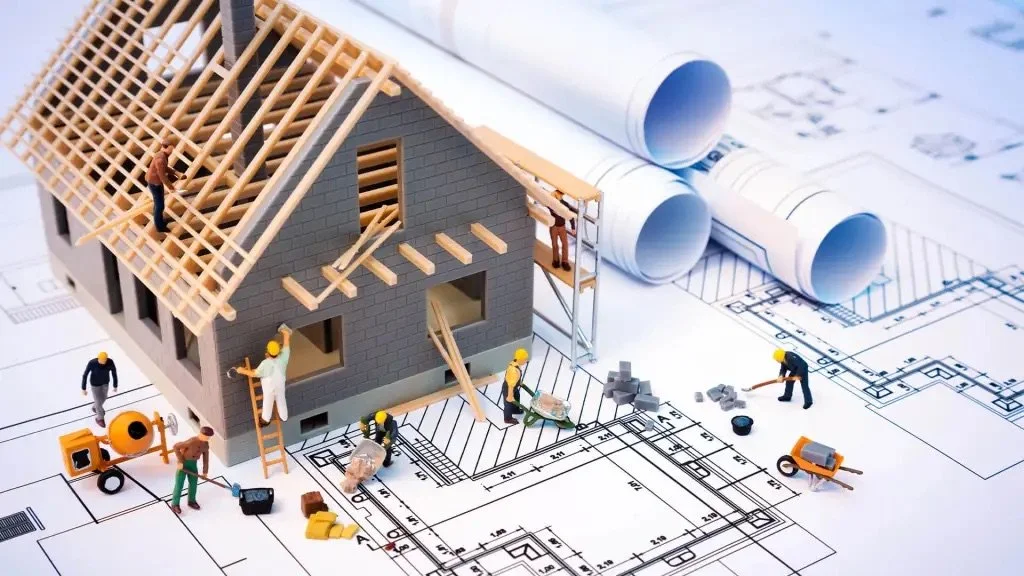Do I Need a Permit? DC Homeowner's Quick Reference Guide
Residential Construction
Last Updated: August 2025
Planning a home improvement project in Washington DC? You're probably wondering whether you need a permit. This comprehensive guide will help you determine when permits are required, what happens if you skip them, and how to get the process started quickly.
The Short Answer: When You DO Need a Permit
Always Require Permits:
Structural changes - removing walls, adding rooms, changing rooflines
Electrical work - new outlets, panel upgrades, rewiring
Plumbing modifications - bathroom additions, kitchen relocations, new water lines
HVAC installations - new heating/cooling systems, ductwork changes
Additions - any increase to your home's footprint
Basement finishing - converting unfinished space to living space
Deck construction - new decks over 30 inches high
Fence installation - fences over 6 feet tall
Driveway changes - new driveways or significant modifications
Typically DON'T Require Permits:
Cosmetic updates - painting, flooring, cabinet refacing
Minor repairs - fixing leaky faucets, replacing broken tiles
Landscaping - planting, garden beds (unless affecting drainage)
Interior painting - walls, ceilings, trim
Appliance replacement - same location, same connections
Window treatments - blinds, curtains, shutters
DC-Specific Permit Requirements
Historic District Considerations
If your home is in a historic district (Georgetown, Capitol Hill, Dupont Circle, etc.), you may need additional approvals even for exterior changes that normally wouldn't require permits:
Exterior paint colors - must be historically appropriate
Window replacements - style and materials matter
Roof materials - slate, cedar, specific colors required
Front yard changes - landscaping, walkways, fencing
Rowhouse Special Rules
DC's unique rowhouse architecture has specific requirements:
Party wall agreements - needed when work affects shared walls
Rear additions - strict setback requirements
Pop-up additions - height and design restrictions apply
What Happens If You Skip Permits?
Immediate Consequences:
Stop work orders - project halted until permits obtained
Fines and penalties - can range from hundreds to thousands of dollars
Safety inspections required - work may need to be torn out and redone
Long-Term Problems:
Insurance issues - claims may be denied for unpermitted work
Sale complications - buyers may demand corrections or price reductions
Code violations - ongoing legal issues until resolved
Real DC Example:
A Dupont Circle homeowner added a bathroom without permits. When selling three years later, the buyer's inspector flagged the unpermitted work. The sale was delayed 6 weeks while permits were obtained retroactively, costing the seller $3,500 in fees and holding costs.
Common DC Homeowner Scenarios
Kitchen Renovation
Permit Needed If:
Moving plumbing or electrical
Removing walls
Adding new outlets or lighting
Installing gas appliances
No Permit Needed If:
Replacing cabinets in same location
New countertops
Painting
New appliances using existing connections
Bathroom Updates
Permit Needed If:
Moving toilet, shower, or sink location
Adding new bathroom
Electrical work (new outlets, fans, lighting)
Structural changes
No Permit Needed If:
Replacing fixtures in same location
New tile or flooring
Vanity replacement (same plumbing connections)
Painting
Basement Projects
Permit Always Needed For:
Converting to living space
Adding bedrooms or bathrooms
Egress window installation
Electrical or plumbing additions
Outdoor Projects
Permit Needed If:
Deck over 30 inches high
Permanent structures (sheds over 200 sq ft)
Fences over 6 feet
Driveways or significant hardscaping
How to Get Started with DC Permits
Step 1: Determine Your Requirements
DCRA website - basic permit information
Zoning verification - confirm your property's restrictions
Historic district check - additional requirements may apply
Step 2: Prepare Your Application
Detailed plans - drawn to scale, showing all changes
Contractor information - licenses and insurance
Property survey - may be required for additions
Neighbor notifications - required for some projects
Step 3: Submit and Track
Online submission - DCRA's electronic system
Plan review - typically 30 days for standard projects
Corrections - address any review comments promptly
Permit issuance - usually within days of approval
Timeline Expectations
Simple Projects (bathroom, kitchen): 3-4 weeks
Complex Projects (additions, structural): 6-8 weeks
Historic District Projects: Add 2-4 weeks for HPRB review
Note: Timelines assume complete, accurate applications. Incomplete submissions cause significant delays.
Cost Considerations
Typical DC Permit Fees:
Minor alterations: $100-$500
Kitchen/bathroom renovation: $300-$800
Additions: $500-$2,000+
New construction: 1-2% of project cost
Additional Costs:
Plan preparation: $500-$2,000
Structural engineer: $1,000-$3,000 (if required)
Expediting services: $1,500-$5,000 (saves weeks of time)
Red Flags: When You Definitely Need Professional Help
Call a Permit Expediter If:
Your project involves multiple agencies (DCRA, DDOT, HPRB)
You're working in a historic district
Your timeline is critical (business opening, event deadline)
Your application was rejected or has multiple corrections
You're an out-of-state contractor unfamiliar with DC requirements
DIY Warning Signs:
"We can do it without permits" - major red flag from contractors
Pressure to start immediately - legitimate contractors plan for permits
Unusually low bids - may not include permit costs
No license verification - always check DCRA contractor database
Frequently Asked Questions
Q: Can I apply for permits myself? A: Yes, homeowners can apply directly. However, complex projects often benefit from professional assistance.
Q: How long are permits valid? A: Most DC permits are valid for 6 months, with possible extensions.
Q: What if my neighbor complains about my project? A: Valid permits protect you from most neighbor complaints about approved work.
Q: Can I start work while waiting for permits? A: No. Starting work before permit issuance can result in stop work orders and fines.
Q: Do I need permits for emergency repairs? A: Emergency safety repairs can often proceed, but permits may be required within a specific timeframe.
Quick Decision Tool
Ask Yourself:
Does the work involve electricity, plumbing, or structural changes? → Permit Required
Are you adding square footage or changing room layouts? → Permit Required
Is your home in a historic district and involves exterior changes? → Permit Required
Are you unsure about any aspect? → Get Professional Advice
Get Expert Help Today
Don't let permit confusion delay your project or create costly problems down the road. M.C.G. Permit Consultants has been helping DC homeowners navigate the permit process since the 1980s.
Free Consultation - No Obligation
Call: (202) 729-8272
Email: sayhello@mcgpermits.com
Online: Free Permit Evaluation Form
What You'll Get:
Project evaluation within 4 hours
Clear permit requirements explanation
Timeline and cost estimates
Direct access to owner
Why Choose M.C.G.:
25+ years of DC permit experience
Personal service - work directly with the owner
Established relationships with DCRA and other agencies
Simply Getting it Done - our proven approach
Don't Risk Costly Mistakes - Get Your Free Permit Consultation Today
Whether you're planning a simple bathroom update or a major home addition, we'll help you understand exactly what permits you need and how to get them quickly and correctly.
Contact M.C.G. Permit Consultants:
Simply Getting it Done Since 2000
This guide provides general information and should not replace professional consultation for your specific project. Permit requirements can change, and individual circumstances may require different approaches.

